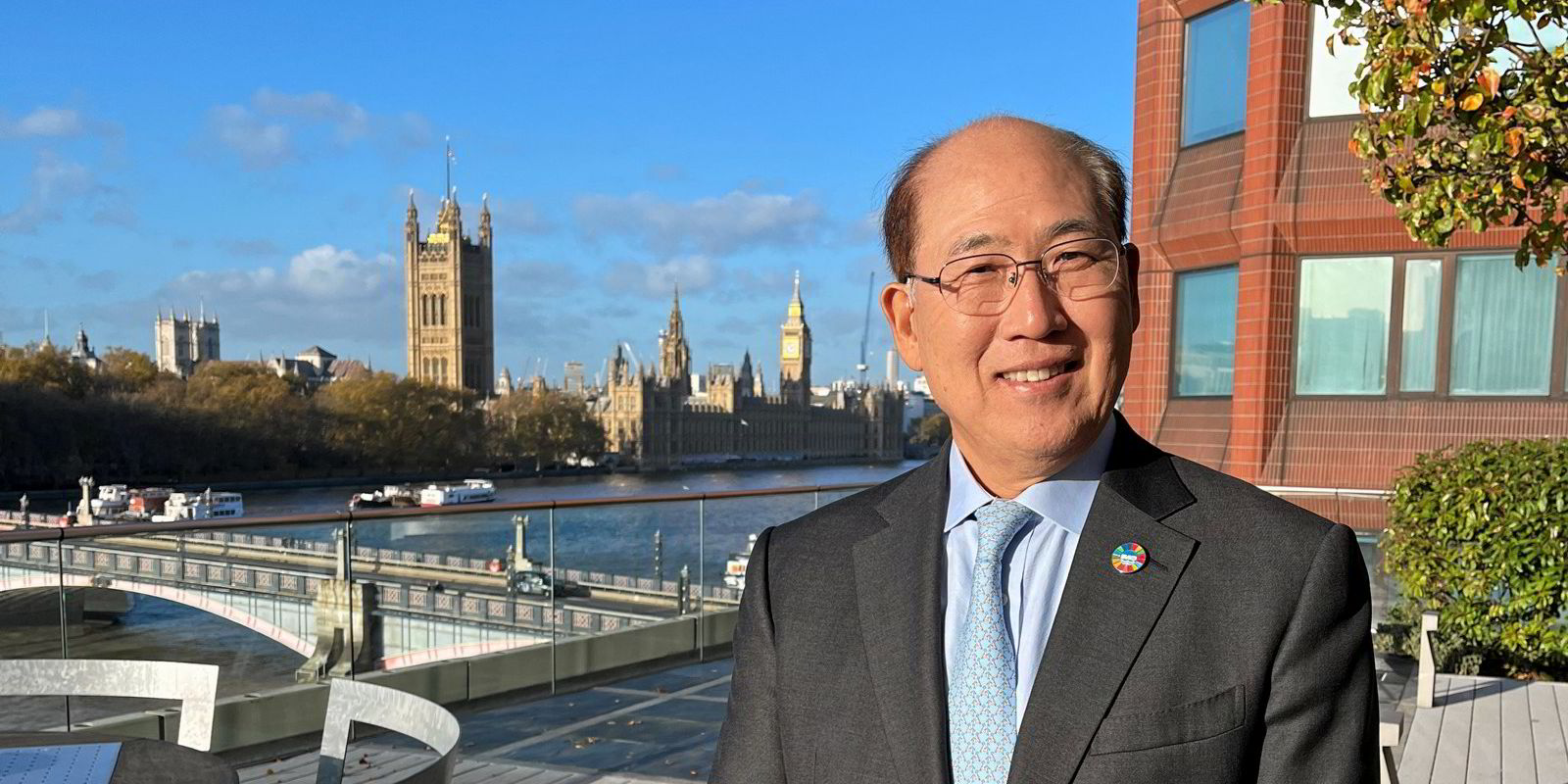The US government has strongly urged the International Maritime Organization to comprehensively redraw its decarbonisation target to match the goals of the Paris Agreement on climate change.
Speaking on the opening day of the Marine Environment Pollution Committee (MEPC) meeting the US delegation warned if shipping’s emissions are not regulated by the IMO to limit global warming to 1.5 degrees celsius it would represent a “failure of this organisation”.
In one of the most hard-line statements made in the day the US said that the IMO’s goal should be to achieve zero emissions — covering not just carbon but all greenhouse gasses — by 2050.
It said this should include firm intermediary targets in 2030 and 2040 which would involve targets for the introduction of zero-emission vessels.
Reflecting the need to also introduce measures which did not damage the economies of developing countries the US said that any measures which the IMO adopts should aim to achieve a “just transition that leaves no one behind”.
Canada also suggested emissions should be regulated on a well-to-wake basis, while Norway said it supported moves to mandate a number of green corridors as part of a decarbonisation deal.
The statements came on a highly-charged day in which environmentalists staged a dramatic demonstration outside the IMO’s Lambeth Bridge building in London emphasising the pressure on the IMO to act.
The IMO meeting comes after discussions at a working group on decarbonisation last week appear to have made progress on laying the ground for a new IMO target.
All delegates recognised the progress in bringing the IMO closer to a decision on decarbonisation targets and introducing a basket of mid-term measures, such as market-based measures, to encourage the transition.
IMO secretary general Kitack Lim told the meeting that he believes the organisation will keep to its pledge to revise its target by next summer’s MEPC meeting.
“I believe MEPC 80, in July 2023, will be a historic moment for IMO to showcase to the world its determined maritime decarbonisation strategy,” Lim told the meeting.
The main issue that the IMO will have to overcome is how to develop measures that will not impact negatively on developing states.
Common but differentiated

Venezuela, Brazil, Argentina and the UAE all pointed out the IMO’s responsibility to consider and understand the principle of Common but Differentiated Responsibility and Respective Capabilities.
The United Nation’s principle allows for different standards to be applied to developed and developing nations.
Argentina pointed out how measures under consideration to achieve global emissions, such as market-based measures, “are not equitable” and could penalise the countries that are furthest from the main global markets.
The IMO has the additional consideration of the interests of so-called Small Island Developing States and Least Developed States which have been impacted by climate change.
Introducing some form of funding mechanism for developing countries is a key element of market-based measures now under consideration. These measures include a straight carbon levy, a so-called feebate system to reward early movers and market-based measures developed around a new fuel standard.
The IMO’s remit is all-encompassing and is taking on the considerations of all related interests. One of the most poignant statements came from a representative of the Inuit community who told the IMO each day she saw her “Arctic homeland disappearing before my eyes”.





